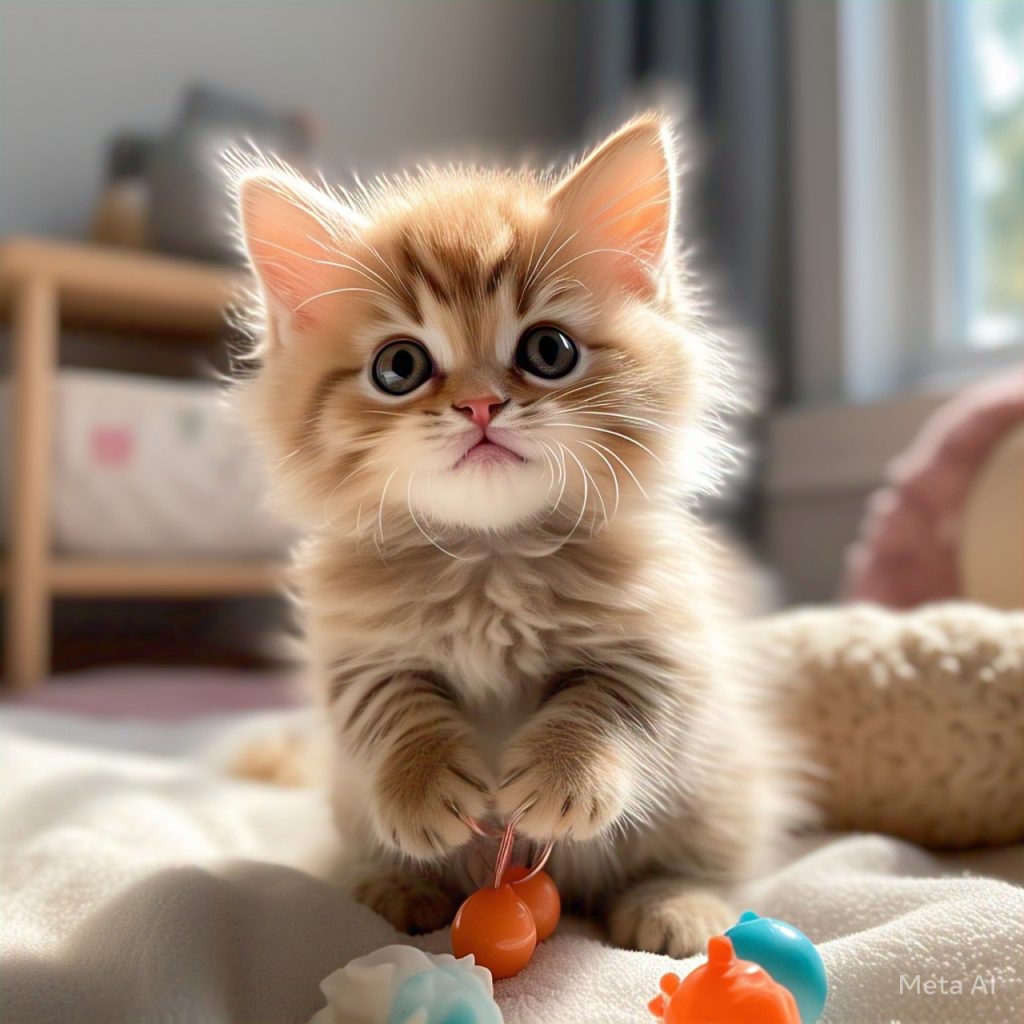Bad breath in kittens is a common concern among cat owners, especially during the teething phase. While a kitten’s breath isn’t expected to smell like flowers, an unusually strong or foul odor could indicate underlying dental or health issues.
In this comprehensive guide, we’ll explore:
✅ The causes of bad breath in kittens
✅ How teething affects oral health
✅ Home remedies to improve breath
✅ Signs of serious dental problems
✅ When to see a vet
If you’re noticing fishy, rotten, or sour-smelling breath in your kitten, keep reading to learn how to address it effectively!
Why Do Kittens Have Bad Breath?
Bad breath, or halitosis, in kittens can result from several factors. Some are harmless, while others may require veterinary attention.
1. Teething (Most Common Cause)
Teething occurs between 2 to 6 months of age, during which kittens shed their baby teeth and grow adult ones. This natural process can lead to:
✔️ Mild gum inflammation
✔️ Excess saliva production
✔️ Bacteria buildup in the mouth
✔️ Temporary bad breath
As long as the breath isn’t overwhelmingly foul, this is normal and will improve once teething is complete.
2. Food Residue and Diet Choices
- Strong-smelling foods (wet food, fish-based diets) can contribute to bad breath.
- Stuck food particles between teeth encourage bacterial growth.
💡 Solution: Brushing your kitten’s teeth and offering water after meals can help reduce odor.
3. Poor Oral Hygiene
Even young kittens can develop plaque and tartar buildup, leading to bacterial overgrowth and bad breath. If left unchecked, this can progress to gingivitis and periodontal disease.
4. Stomatitis (Severe Inflammation of the Mouth)
Some kittens develop an immune response to plaque, leading to red, swollen gums and very foul breath. This condition requires veterinary intervention.
5. Foreign Objects or Oral Infections
- Chewing on household items (e.g., plastic, fabric, or small objects) may lead to cuts or infections in the mouth.
- Small bones, sticks, or fur can get stuck in the teeth, leading to bad breath.
6. Digestive or Internal Health Issues
- Kidney disease – A urine-like or ammonia-smelling breath may indicate kidney dysfunction.
- Gastrointestinal issues – Persistent foul breath could be linked to indigestion or an imbalanced gut microbiome.
- Parasites (e.g., worms) – Intestinal parasites can contribute to foul-smelling breath.
Teething Timeline: What to Expect
A kitten goes through two stages of dental development, each affecting their breath differently.
🦷 1. Baby Teeth Eruption (2-6 Weeks Old)
At around 2 weeks old, kittens develop their deciduous (baby) teeth. These teeth are small and sharp, but bad breath is rare at this stage.
🦷 2. Teething & Adult Teeth Growth (3-6 Months Old)
Between 3 to 6 months, kittens lose their baby teeth, and their 30 permanent adult teeth come in. Symptoms include:
✔️ Mild gum bleeding (can cause a metallic odor)
✔️ Drooling
✔️ Chewing on objects
✔️ Occasional bad breath
💡 Tip: Providing teething-friendly chew toys can help soothe discomfort and reduce bacteria buildup.
How to Treat and Prevent Bad Breath in Kittens
1. Brush Your Kitten’s Teeth Regularly 🪥
- Start introducing a cat-safe toothbrush and toothpaste (never use human toothpaste).
- Brush 2-3 times per week to prevent plaque and odor buildup.
2. Offer Dental Chews and Toys 🦴
- Soft rubber or fabric chew toys help massage gums and remove bacteria.
- Catnip-infused toys encourage chewing, naturally cleaning teeth.
3. Provide a Balanced Diet 🍗
- Avoid excessive fish-based diets (they contribute to strong-smelling breath).
- Add probiotics or gut-friendly foods (like plain pumpkin or probiotic cat treats) to support digestion.
- Ensure access to fresh water to rinse the mouth.
4. Use Water Additives or Oral Sprays 💧
- Vet-approved oral rinses or water additives can freshen breath and reduce bacterial growth.
- Avoid products with xylitol, as it is toxic to cats.
5. Schedule Vet Checkups 🏥
- A vet can check for retained baby teeth, infection, or other dental concerns.
- Annual dental cleanings (or as recommended) will keep their breath fresh and prevent disease.
Signs Your Kitten’s Bad Breath Might Be a Serious Problem
🚨 If your kitten’s breath is unusually foul, persistent, or accompanied by these symptoms, it’s time to consult a vet:
✅ Severe redness or swelling of gums
✅ Bleeding or pus around the teeth
✅ Difficulty eating or loss of appetite
✅ Pawing at the mouth
✅ Sudden weight loss
✅ Diarrhea or vomiting (if linked to digestive issues)
If the breath smells like ammonia (kidney-related) or rotten (infection-related), a vet visit is urgent.
Final Thoughts: Is Kitten Bad Breath Normal?
🔹 Mild bad breath is normal during teething and will usually resolve on its own.
🔹 Strong or persistent bad breath may indicate poor oral hygiene, dietary issues, or an underlying health condition.
🔹 Early intervention, regular dental care, and vet checkups will ensure your kitten grows into a healthy, happy cat with fresh breath.
By following these tips, you can prevent dental disease, improve your kitten’s oral health, and keep their breath smelling clean.

